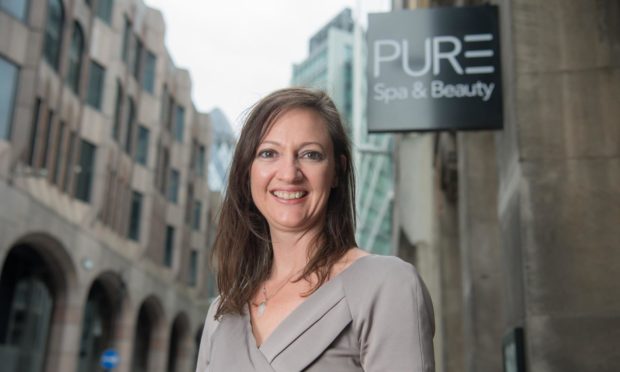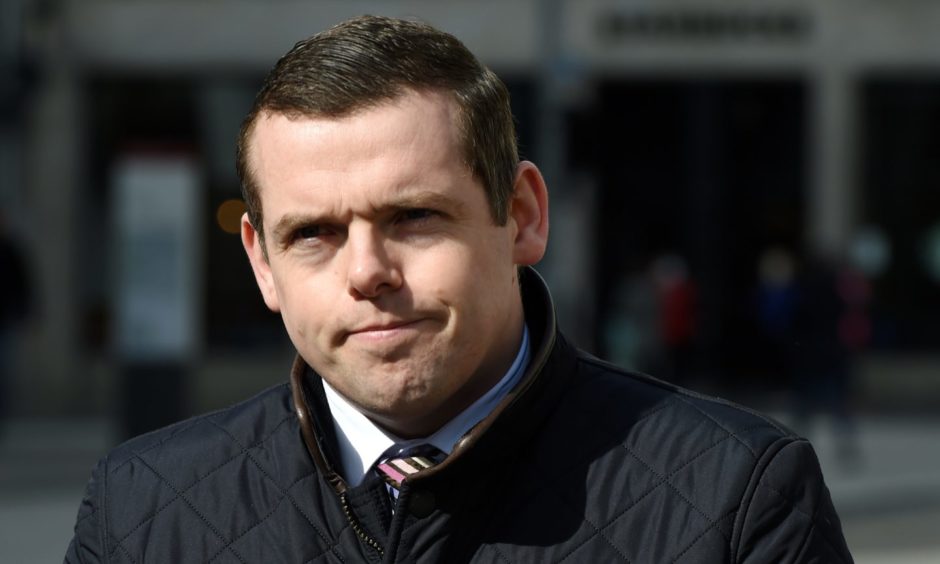The Scottish Government has been accused of “discriminating” against women in a row over differing support for the beauty sector north and south of the border.
Dependent on the value of their premises, owners of hairdressers, beauticians, nail bars, and spas are being left thousands of pounds worse off in Scotland.
But unlike their counterparts, some in the beauty sector feel they are being “discriminated” against, as the restart grants made available fall short of the equivalent on offer in England.
All other sectors have received like-for-like funds, with money passed from Westminster to cover the cost.
Founder of Pure Spa And Beauty, Becky Woodhouse, who has two Aberdeen premises in Union Square and Cults, said her firm has lost out on £18,000 in the Granite City alone – money they were banking on to pay backdated rent and to cover the cost of reopening.
She said: “This is a massive blow to the Scottish close contact services industry and puts us as a huge disadvantage to our colleagues in the rest of the UK.
“I really don’t understand the government’s thinking on this decision when £800 million of funding has been provided specifically for the restart grants in Scotland, yet you have chosen to single out close contact services as the only industry in Scotland.
“It just seems bizarre to me why they would single out a predominately female-led sector dominated by small and medium-sized enterprises (SMEs), many of which have been founded and grown by a female founder, like Pure.
“When I started the business in 2002, I had to go to 10 banks before one of them would loan me the money to start, and I had to agree to have a second charge put on my family home to secure the loan, which of course meant that if Pure at any point fails, I risk making my children homeless.
“It is sadly disappointing to know that in the 19 years since, not a lot seems to have changed and it is still just as hard for SME’s and in particular females, to access funding to start and grow their business.
“This is why the unfathomable decision to block funding makes no sense at all – these grants are a lifeline for our industry to survive and thrive.”
The difference in funding regime is estimated to affect around 3,750 businesses, employing nearly 30,000 – “the vast majority being women,” she said.
“Close contact services is the only business sector in Scotland that will not receive the same level of restart grants as in England and singling out one sector, particularly one dominated by women owners and operators is sexist discrimination.
“There can be no justification given that is acceptable.”
There are three tiers of support in England, calculated using the rateable value of properties, but a flat rate of £6,000 in Scotland for the close contact sector – despite equivalent funding being made available by Westminster.
It means small firms are £2,000 down on English counterparts, medium-sized premises will receive half of the £12,000 on offer down south and the top level, rated at £51,000 or more, are £12,000 down on the £18,000 they would receive elsewhere.
And calls for parity with support on offer in England were backed by Scottish Conservative leader Douglas Ross last night.
The Moray MP, standing for election to Holyrood next month, said it was something the government “has to look at”.
He added: “I have seen no good reason why businesses like Pure Spa And Beauty were unable to access grant support at the same level as similar companies elsewhere in the UK.
“I am sure they will welcome the news that they can open up again, but they rightly feel that they have been treated unfairly.
“The SNP have failed to listen to business through this pandemic and decisions taken by the Scottish Government have let down many businesses and put jobs at risk.”
A Scottish Government spokesman said: “Restart grants will be paid to non-essential retailers and leisure and hospitality businesses in line with the categories of payments from the strategic framework business fund.
“Leisure and hospitality businesses were subject to more severe restrictions as many were not able to open in Levels 2-4 so have been closed since October 2020 or earlier.
“Non-essential retailers, including close contact services, are only required to close when Level 4 restrictions are in place.”

